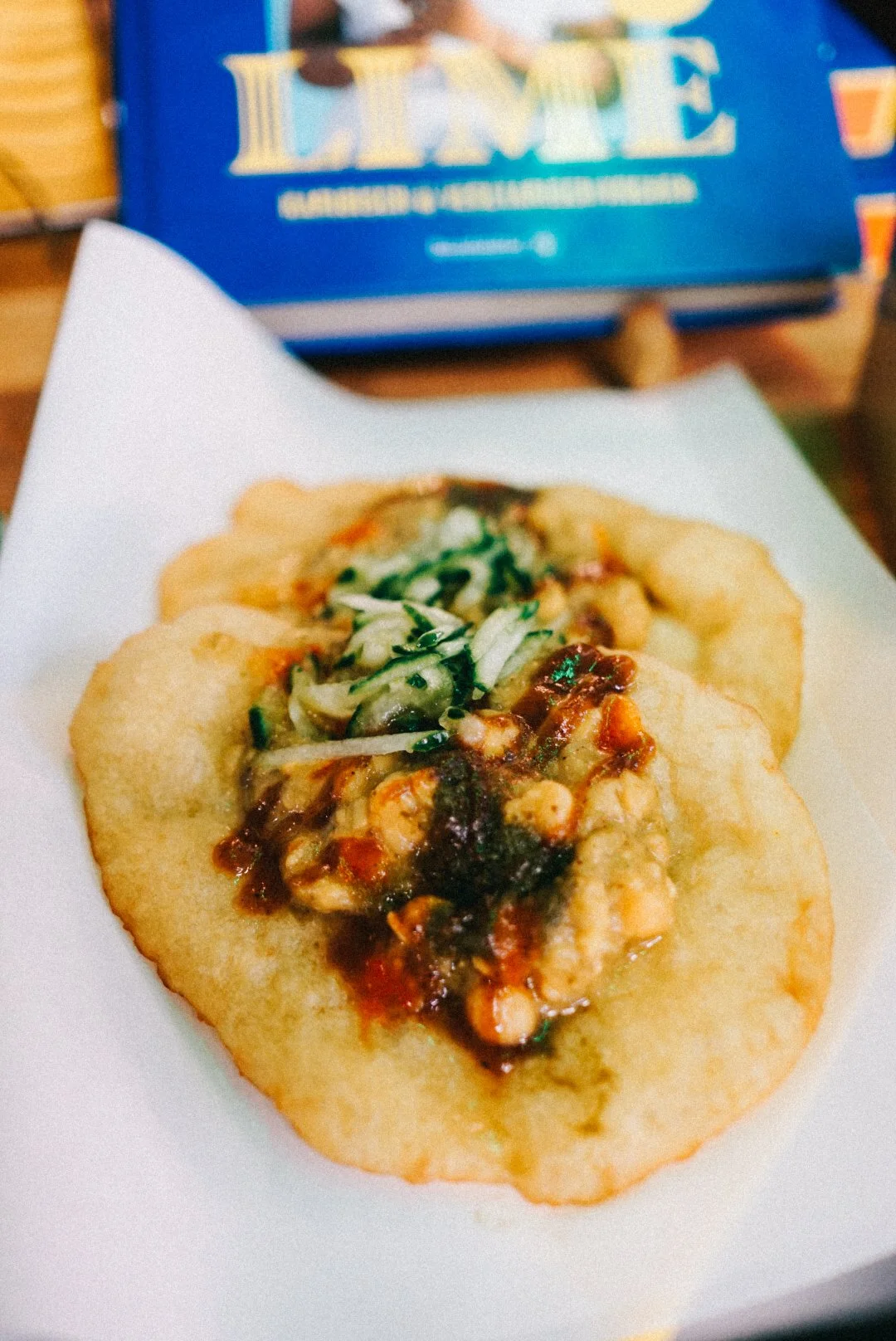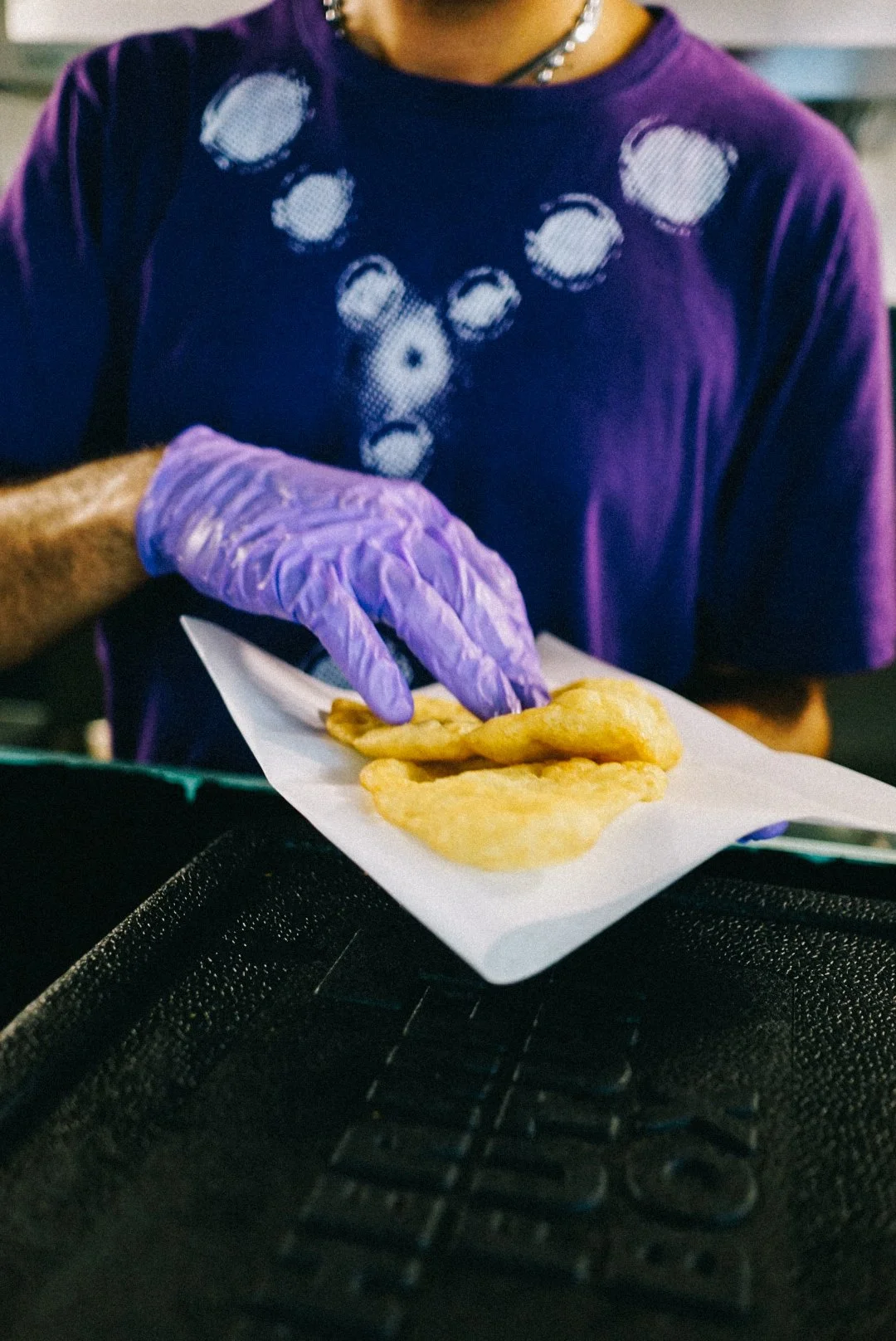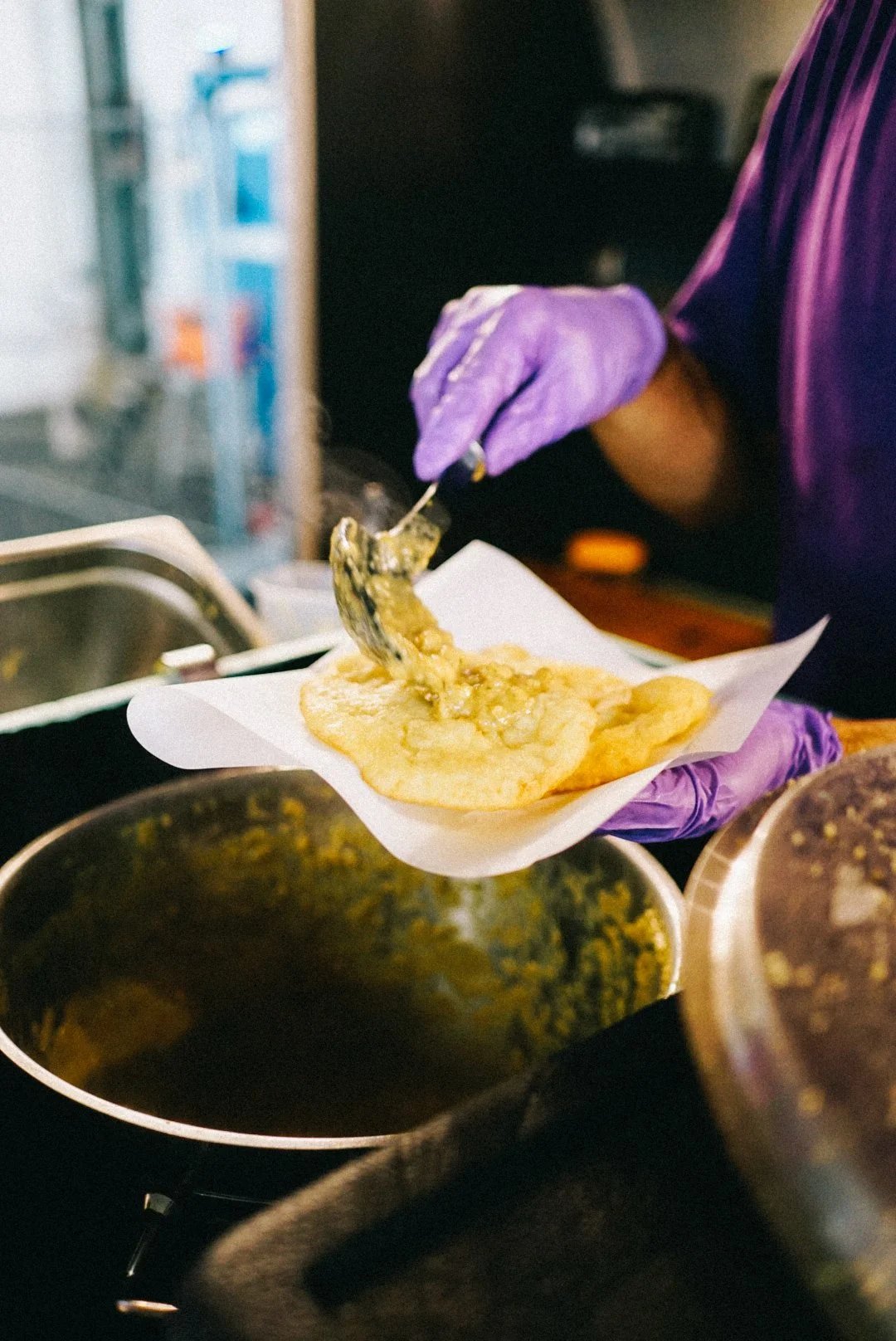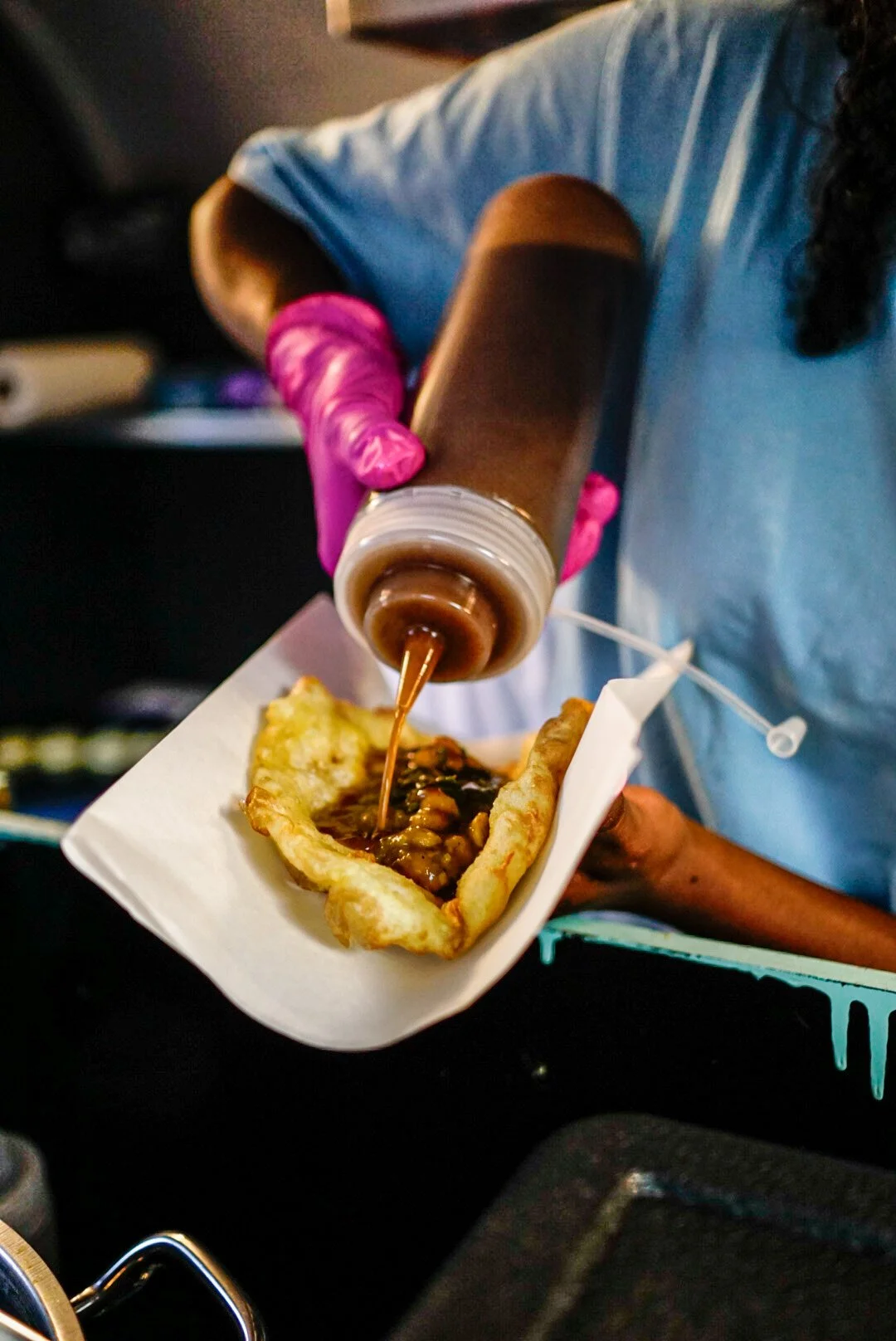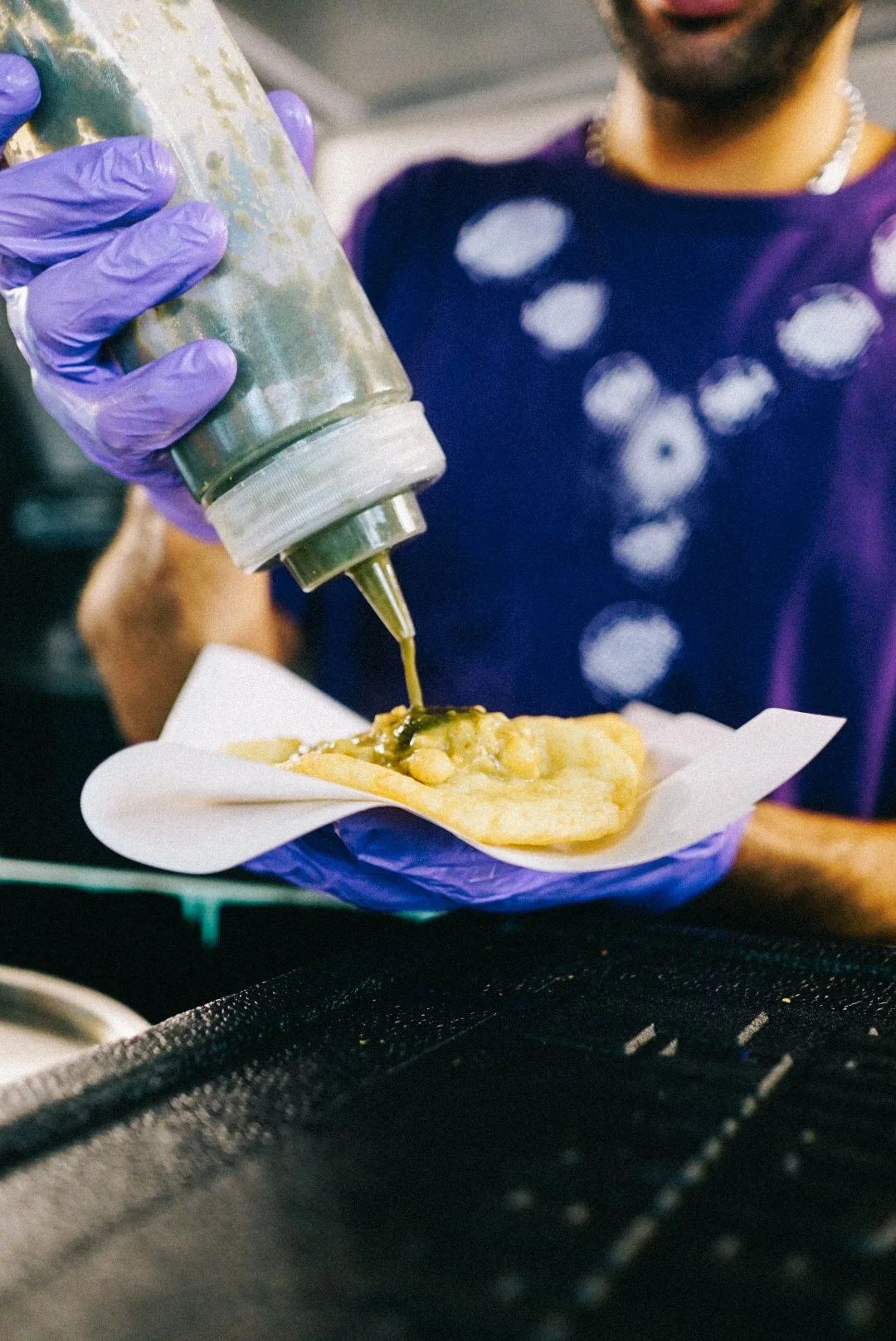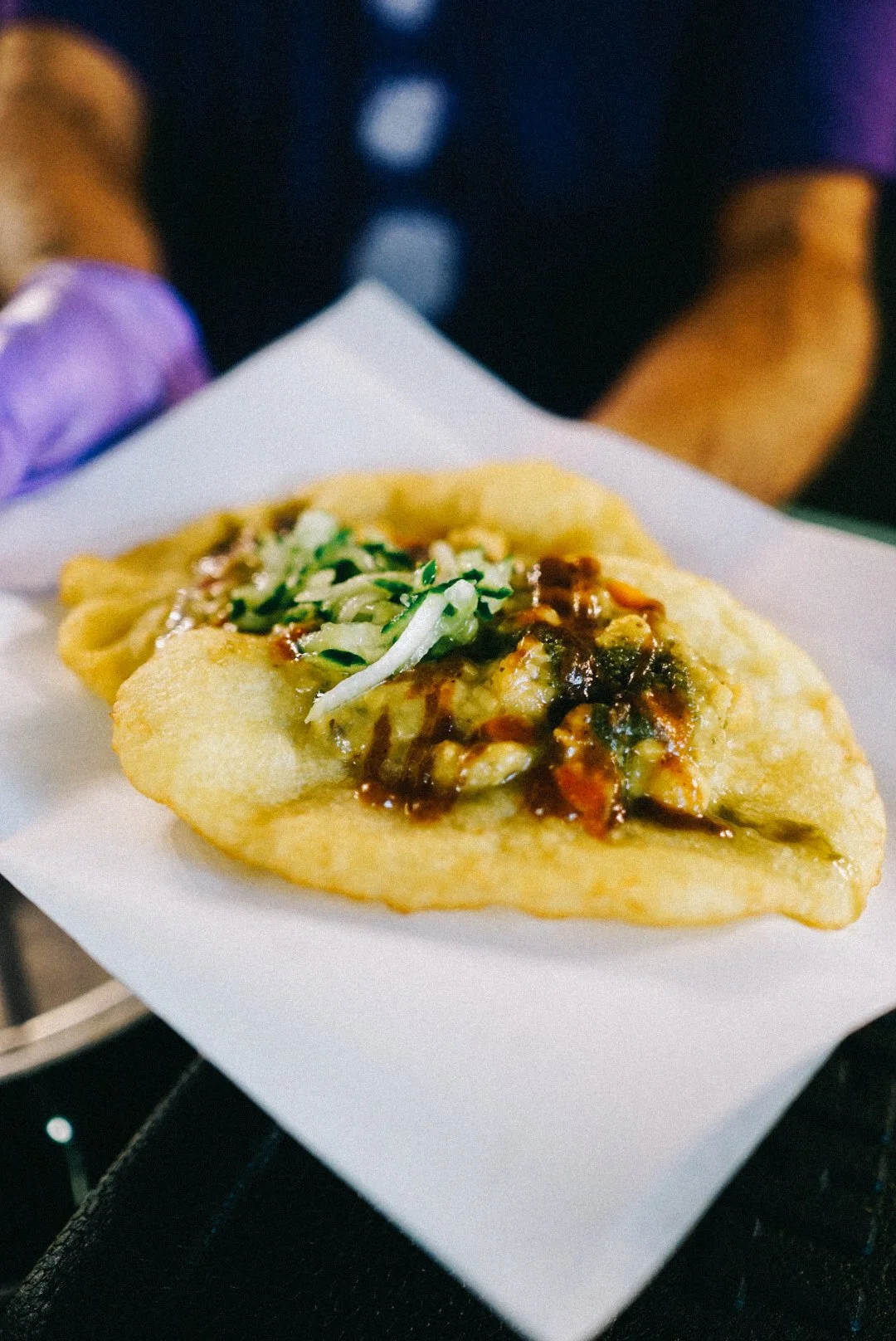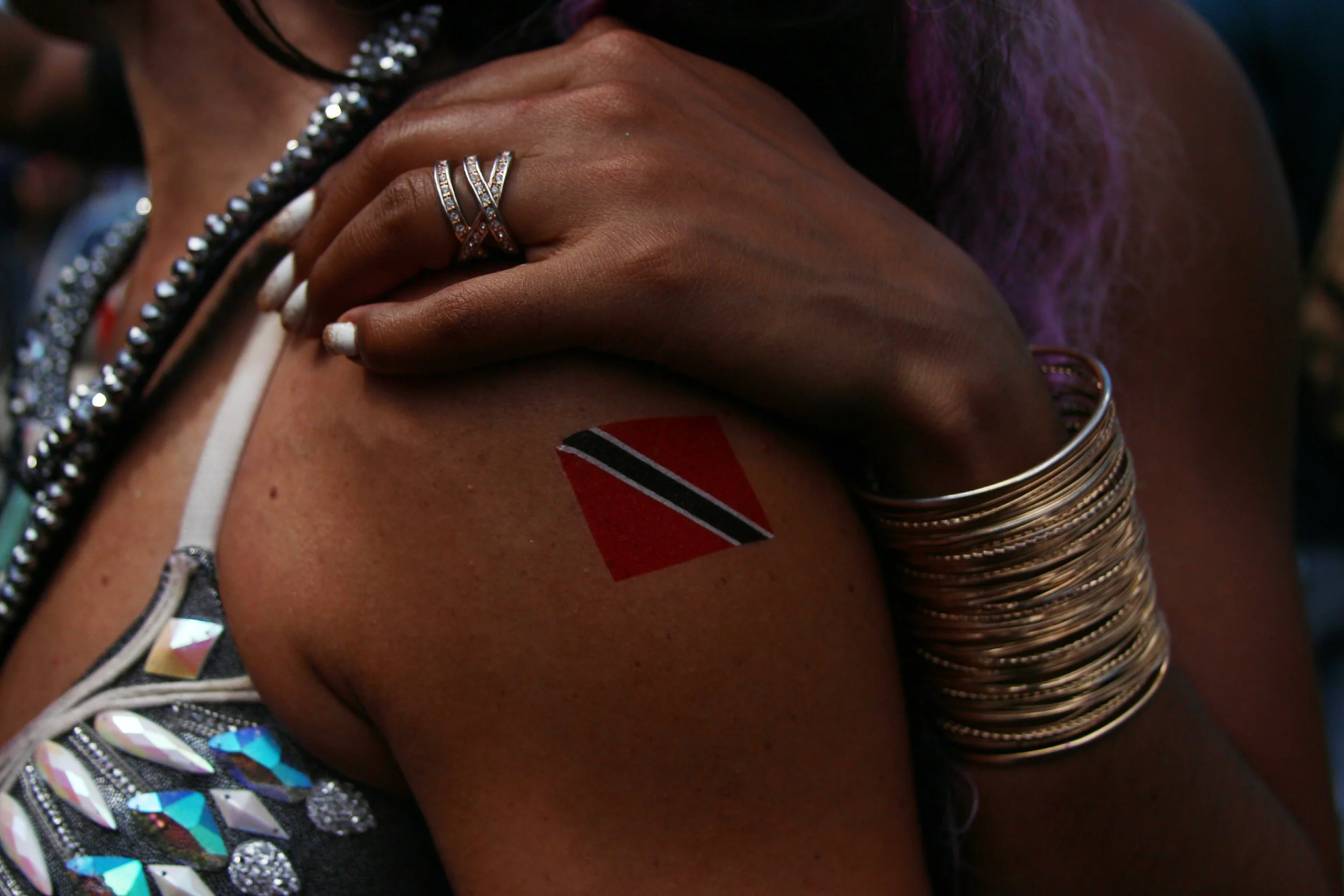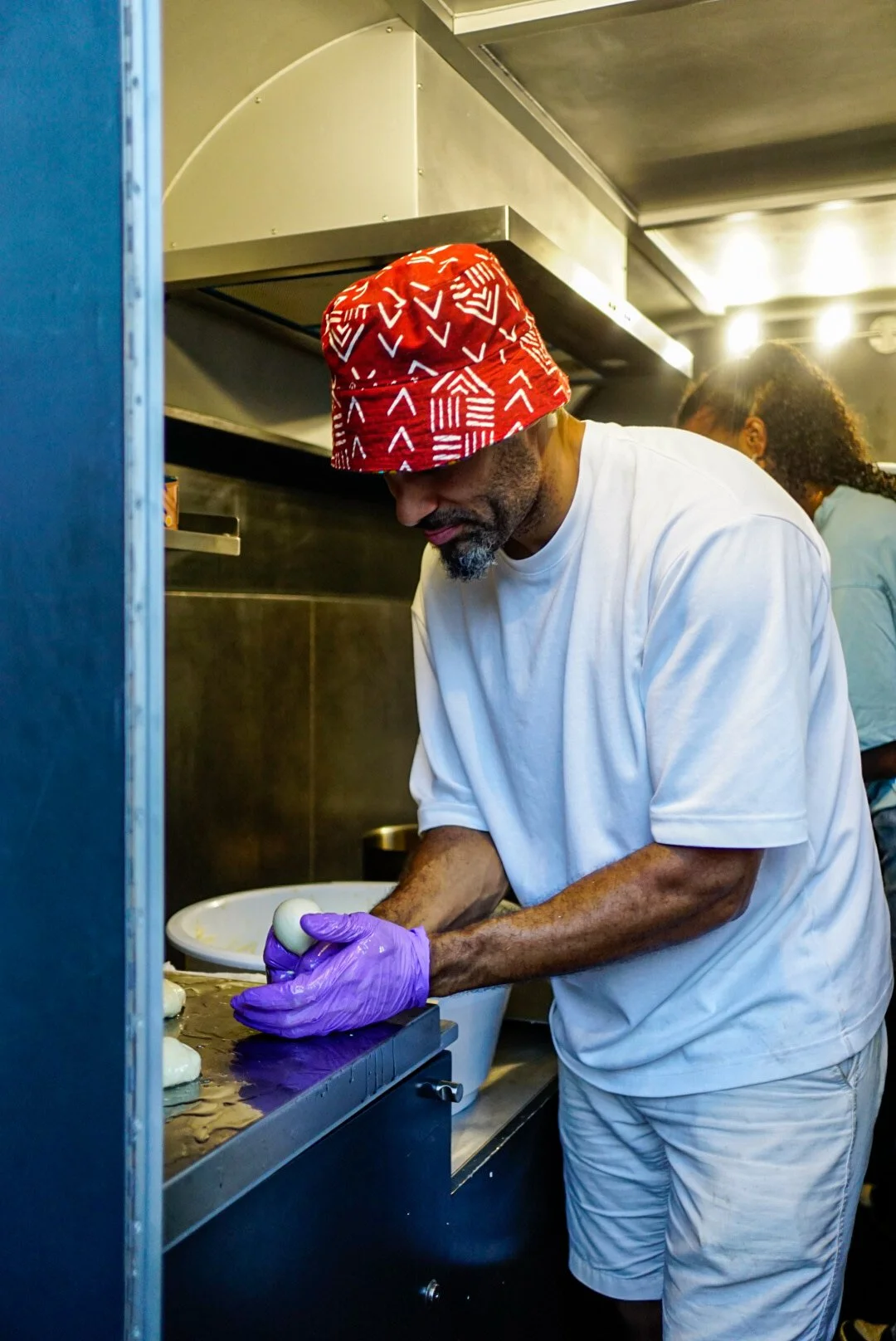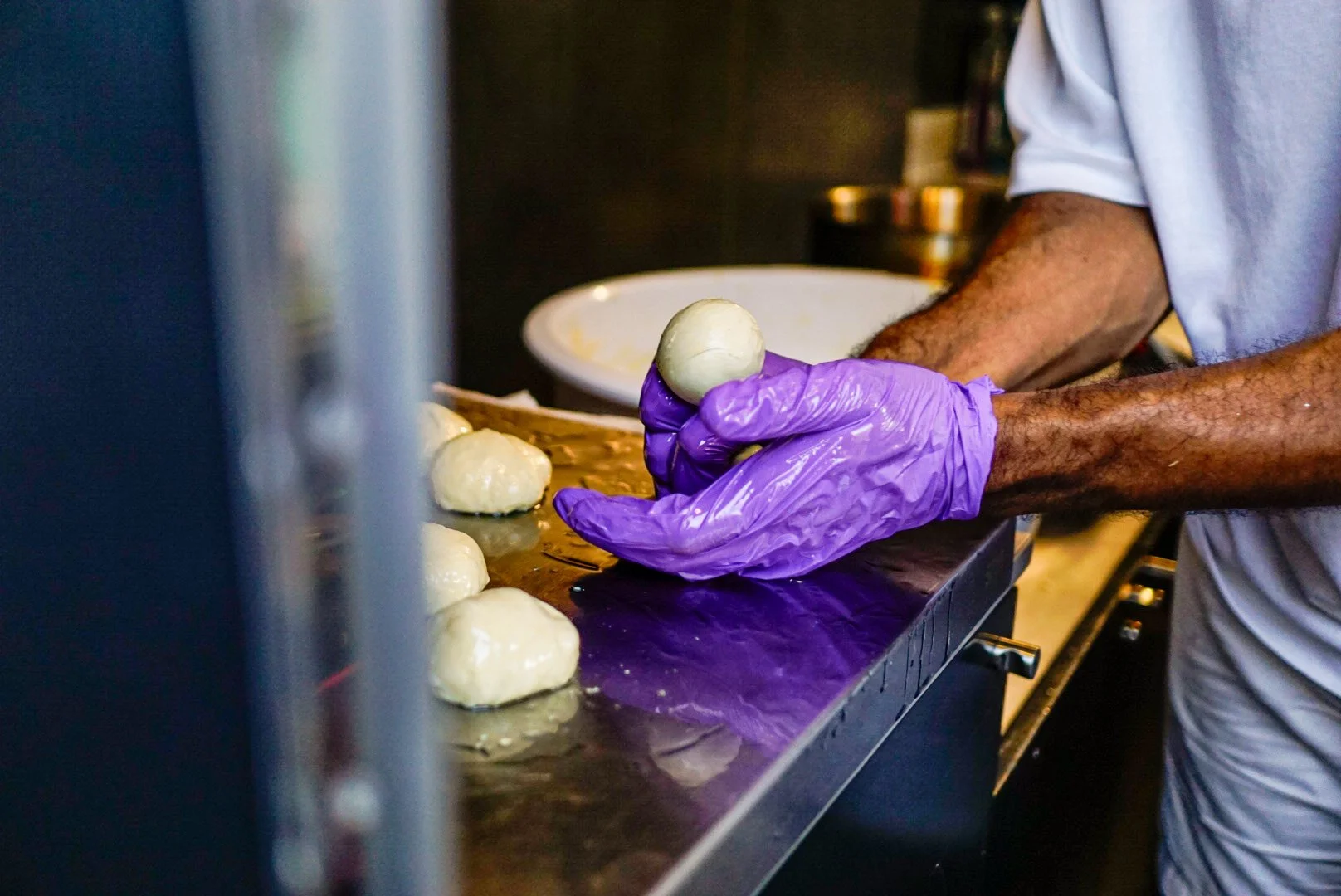What is a Doubles?
Doubles is home.
It’s the first thing you eat at the airport when you land in Trinidad and the last thing you eat before you depart. Our country’s number one streetfood is the embodiment of our cultural diversity, a symbol of culinary unity. You can get a Doubles morning, noon and late night from vendors all over the islands. Everyone puts their little spin on it but all must have the essentials.
A classic Doubles features two fluffy, glutenous flatbreads (bara) topped with curried chickpeas (channa), tamarind sauce, shado beni sauce, grated cucumbers and an optional hot pepper sauce. Every component of a Beni Doubles is made from scratch and is 100% unforced vegan.
Doubles taste better in Trinidad.
For the same reason Guiness tastes better in Dublin, Phở in Vietnam and Döner in Germany. That’s where Doubles come from. Every bite tinged with tropical climate, salty seabreeze, and exhaust fumes from maxi-taxis. Old talk, soca blasting from a van speeding by, customers shouting their orders at the the doubles vendor. The sensation is all encompassing, but all part of the process. Having said that, if you’re not travelling to Trinidad soon, the next best thing is Beni Doubles!
Two baras can be true.
Prince’s Town, in South Trinidad, is the place where many say Doubles originate. By a man named Mamodeen, the descendant of East Indian indentured servants. He wanted to offer a dish known as chole bhatura, which consisted of one fried flatbread (bhatura) and curried chickpeas (chole). He would offer this to people on their way to work in the mornings. For many though, one bhatura–what became bara–wasn’t enough. “Big man! Gimme ah next one, please!” Soon enough, the meal became known as Doubles.
Now some people attribute the creation of modern day doubles to Ali’s Doubles. Two things can be true. Yet someone did make an adjustment going from one bara to two. And someone also has to be credited for adding Trini seasoning to the channa–formally chole–and our wonderful condiments. Trinidad and Tobago has a rich culinary history and that leads us to believe that our West African taste buds definitely had their sweet hands in developing those waves of Caribbean flavor that make Beni Doubles what it is today.


